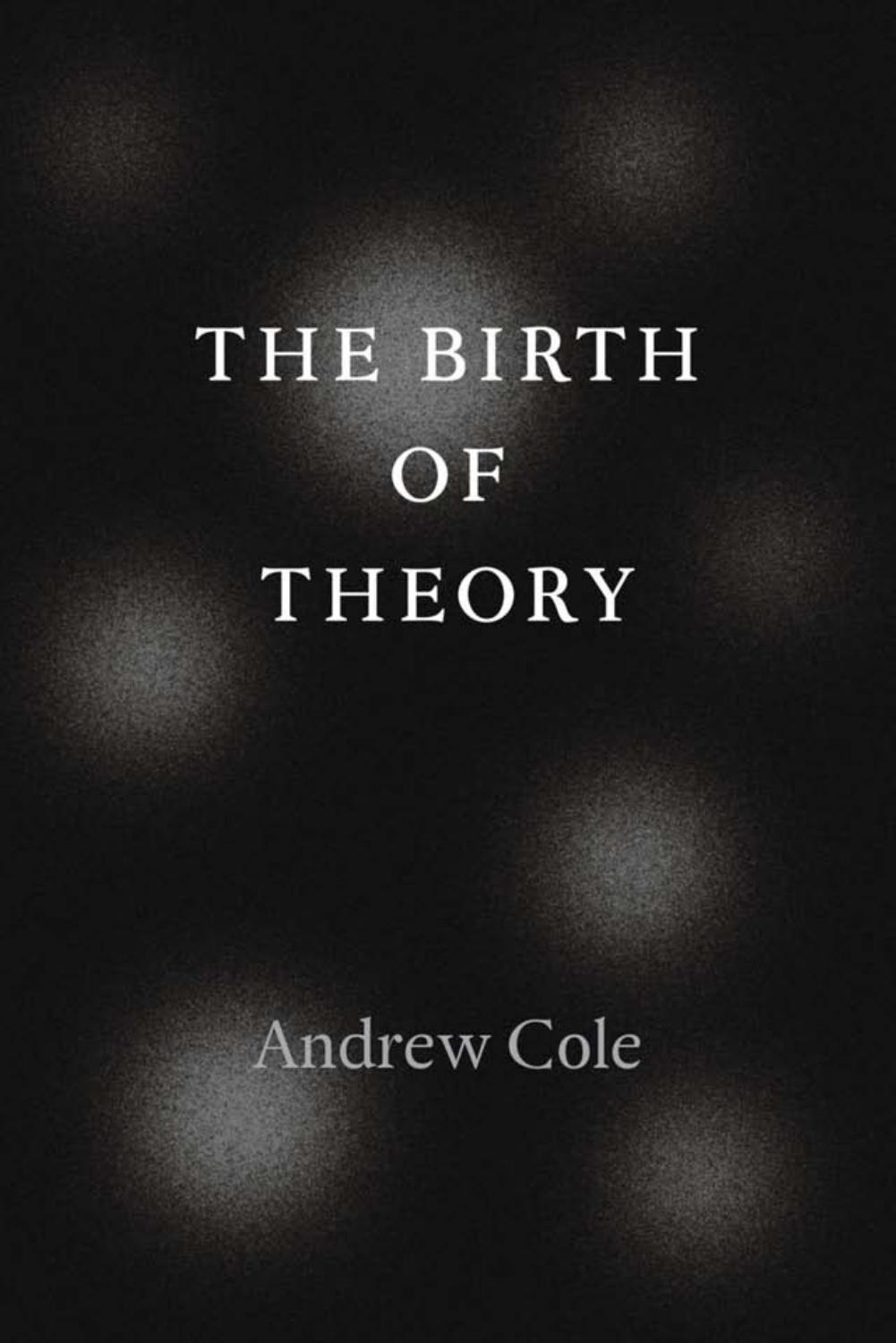The Birth of Theory by Andrew Cole

Author:Andrew Cole [Cole, Andrew]
Language: eng
Format: epub, pdf
Publisher: University of Chicago Press
Published: 2014-06-14T21:00:00+00:00
6
On Dialectical Interpretation
I dwell in Possibility—
EMILY DICKINSON
Getting Hegel, Wilhelm von Humboldt, and Leopold von Ranke to agree on something would be a marvelous occasion. But in nineteenth-century Berlin there was never any such marvel—especially if you expect these fellows to agree on what the literary imagination is good for. Is the literary imagination only for poetry? How might it improve historiography? What about philosophy? Each took a stab at these questions. Wilhelm von Humboldt, for example, held that poetry matters not a whit to history; historians should not expect poetry to tell us about the past nor should they decide that poetry is as eventful as political history. For poetry, he thought, deals with human actions in such a way as to render the accidents of reality, the arbitrary unfolding of history, into a fiction of necessities and plotted motivations. Likewise, when it comes to historiography, so claimed von Humboldt, historians should eschew poetic flourish and write in lucid prose. Von Ranke, that great innovator of historical science, was a bit more accepting of poetry. He acknowledged that historiography is an art, somewhere between philosophy and poetry. Yet unlike these latter two disciplines and practices, history concerns itself with “the real,” not “the ideal” of philosophy and art. Even so, von Ranke maintained that a historian might employ the “imagination,” the poetic faculty, but only to assimilate into a whole the “documentary traces” of the archive. Never, however, should such an exercise produce poetry itself—only prosaic historical narrations.1
Then there was Hegel, with his own point of view. For him, poetry is historical because it is ideal. Von Ranke was wrong on that score, Hegel thought. And Hegel kept on thinking along these lines, seeking to use his brand of idealism to think through the problem we now recognize by the phrase “literature and history.” He had a range of views on the historicity of poetry, all of them patently philosophical. He thought that because poetry is temporal, it mimics historical experience in its unfolding.2 He also had a sense of genre, feeling that poetry, especially epic poetry, draws narrative history (events, persons) into itself, translating the prosaic details of life into the imagination and presenting events in “succession.”3 He also believed—and this gets at what it means to speak of his thought as a “system”—that because poetry’s medium is language, poetry is “the property of spirit” and thus already resides in history as a particular instantiation of the “concept” of a given age.4 No matter how he approaches the question of poetry’s historicity, he seeks to avoid reducing poetry to historiography, which is why he emphasizes that poetry presents not “the content or meaning of an historical fact that has actually occurred, but some fundamental thought more or less closely akin to it, in short a collision of human experience.”5 Poetry, that is, expresses not historical trivia but rather the concept of a historical period that makes consciousness what it fundamentally is at that moment. It is no wonder, then,
Download
This site does not store any files on its server. We only index and link to content provided by other sites. Please contact the content providers to delete copyright contents if any and email us, we'll remove relevant links or contents immediately.
| African | Asian |
| Australian & Oceanian | Canadian |
| Caribbean & Latin American | European |
| Jewish | Middle Eastern |
| Russian | United States |
4 3 2 1: A Novel by Paul Auster(12354)
The handmaid's tale by Margaret Atwood(7729)
Giovanni's Room by James Baldwin(7301)
Asking the Right Questions: A Guide to Critical Thinking by M. Neil Browne & Stuart M. Keeley(5741)
Big Magic: Creative Living Beyond Fear by Elizabeth Gilbert(5726)
Ego Is the Enemy by Ryan Holiday(5392)
The Body: A Guide for Occupants by Bill Bryson(5065)
On Writing A Memoir of the Craft by Stephen King(4920)
Ken Follett - World without end by Ken Follett(4705)
Adulting by Kelly Williams Brown(4552)
Bluets by Maggie Nelson(4534)
Eat That Frog! by Brian Tracy(4500)
Guilty Pleasures by Laurell K Hamilton(4424)
The Poetry of Pablo Neruda by Pablo Neruda(4079)
Alive: The Story of the Andes Survivors by Piers Paul Read(4010)
White Noise - A Novel by Don DeLillo(3990)
Fingerprints of the Gods by Graham Hancock(3979)
The Book of Joy by Dalai Lama(3960)
The Bookshop by Penelope Fitzgerald(3827)
